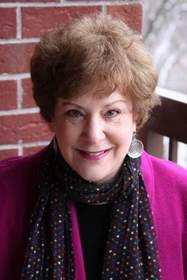FRAMINGHAM, MA--(Marketwire - May 12, 2010) - As a country, Memorial Day is a time to remember those servicemen and women who bravely laid down their lives for our freedoms. But for a growing number of Americans, Memorial Day is extremely personal. Conflicts in Iraq and Afghanistan continue to claim the lives of our soldiers -- and continue to increase the number of family, friends, and loved ones who are grieving their loss.
Dr. Susan A. Berger, grief specialist and author of the book, The Five Ways We Grieve, Finding Your Personal Path To Healing After The Loss Of A Loved One (Trumpeter, October 2009), offers that Memorial Day observance can actually help heal those emotional wounds and relieve the burden of loss.
"One very important way that some of us grieve is to try to attach meaning to that person's life as well as their death," Dr. Berger said. "Those who follow what I call the 'Memorialist path to healing' honor and preserve the memories of their loved ones on special occasions or through certain rituals."
A Memorialist is one of five grieving personality types Dr. Berger has identified in her book, The Five Ways We Grieve. The other four are Nomads, Normalizers, Activists, and Seekers. Each grieving personality type deals with loss in different ways.
Not surprisingly, a Memorialist is most likely to find comfort and strength through structured Memorial Day ceremonies.
"Memorial Day represents the ultimate recognition of a loved one's sacrifice," Dr. Berger said. "Not only does it attach deep meaning to his or her death, Memorial Day also represents the highest honor and acknowledgement of that sacrifice. It can feel like the whole country is coming together to share in the grieving process."
"Even someone who wouldn't typically fall into the Memorialist personality type could find comfort in that," Dr. Berger said.
Dr. Berger states that despite this public recognition of loss, there are still social barriers to coping with grief. Society tends to expect people to simply "get over it" even though for some it can take years. Most simply never get over the death of a loved one completely.
But there are ways of learning how to cope, Dr. Berger said. "Death is a part of life, so we have no choice but to accept it, and find ways to help us cope better," she said. "Bereavement counseling is one way. But it might also be as easy as identifying our own grieving personality type, and understanding that how we grieve is as important as why."
Dr. Susan A. Berger, LICSW, EdD, founded The Center for Loss, Bereavement, and Healing in Framingham, Massachusetts, where she has a clinical practice and offers workshops to professionals and hospices as well as general audiences. She earned her Doctorate in Education from Harvard University as well as a Master's Degree in Social Work and a Bachelor's Degree in Philosophy from Boston University. She also holds a Certificate in Thanatology from Mt. Ida College.
Dr. Berger can provide more information about grieving and Memorial Day, including tips and strategies for dealing with the loss of a loved one on a personal and a family level.
Dr. Berger can be reached at saberger@comcast.net calling 617-962-6813 or via her website at www.susanaberger.com. For press inquiries; please contact Joanne DiFrancesco, JDCommunications, Inc., 781-828-0323 or visit the company website at www.jdcomm.biz.
Contact Information:
PRESS CONTACT:
Joanne DiFrancesco
JDCommunications, Inc.
(781) 828-0323
